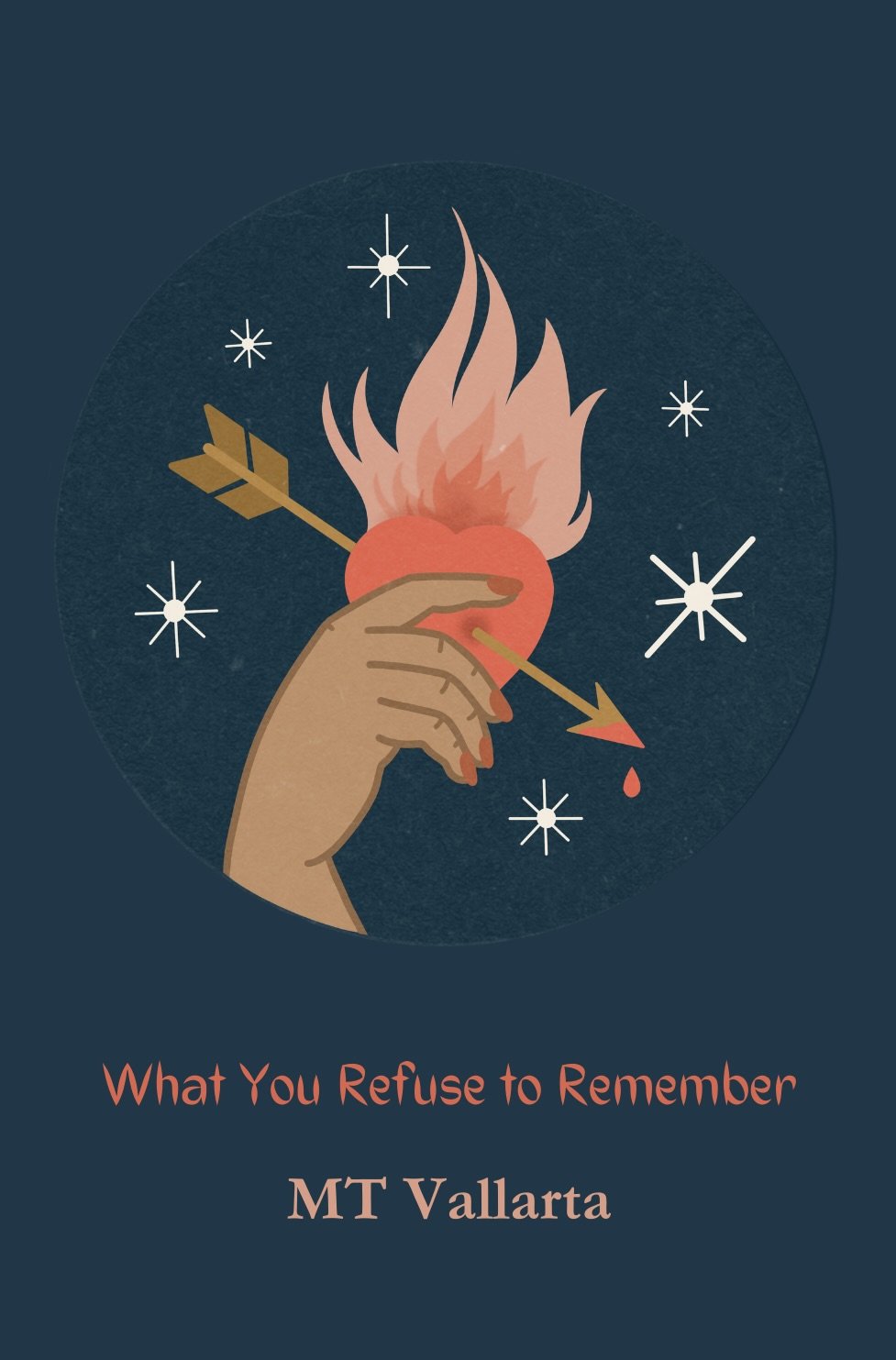Purchase What You Refuse to Remember!
Cover art: Burning Heart, Angeli Cabal
Praise for What You Refuse to Remember:
The poems in What You Refuse to Remember dare us to enter a fragmented, razor-sharp world of reckoning. From memories of the childhood friend who self-harms to the navigation of queer, Filipinix identity, to the surreality of losing a loved one to suicide, Vallarta asks us to consider the question: “what blisters but does not burn?” The poems in this collection yearn not for deliverance from suffering, but instead “dream . . . of turning into a broom.” With maturity and urgency, Vallarta sweeps broken glass and pale flowers up into a bouquet and delivers it to us with both hands. What You Refuse to Remember will lead you to the spot where “the shadows make a tent over your head.” This collection demands that we lean into those shadows and seek shelter beneath their radiant revelations.
—Joan Kwon Glass, author of Night Swim
MT Vallarta’s What You Refuse to Remember is an exquisite bounty of restorative lyrics that germinate in the nourishing grounds of prose poetic blocks, the flexible geometries of page space, and the unmooring of language from traditional grammatical markers. In Vallarta’s masterful hands, we traverse a complicated, sweeping landscape of racial, gendered, queer, and postcolonial subjections; personal and structural traumas; the many metamorphoses of our kinship filiations; and the crucial need for aesthetic rejuvenations. Remixing diverse cultural genealogies, scholarly theories and elegiac introspections, this collection revels in the elegant intimacies of our psychic interiorities, however embattled they may be, alongside the ever pressing need to demand so many forms of social justice. A coruscating, capacious, and courageous debut.
—Stephen Hong Sohn, author of Minor Salvage: The Korean War and Korean American Life Writings
What You Refuse to Remember transgresses narratives of second-generation immigrant g[x]rlhood by intimately positioning it against cultural histories of imperialism, gender violence and femme subjugation. Its language cleaves through these dense entanglements with an unwavering queer, emo-feminist Filipinx voice-knife, exposing the raw, tender linkages. In its depth, we are “met in the moment of apocalypse,” where “lips dangle fire.” MT Vallarta responds, “the Filipino diaspora is a transpacific current of chronic sickness.” Vallarta lays bare stories of surviving mental illness and su!c!d!al!ty, like how “light gushes into petals.” All are gifted life-giving names—“sunflower,” “apple peel,” “dandelion.” Here, queerness and florals are a carefully constructed life-raft, strong enough to hold and to “love in vice grips until we writhe.”
—Angela Peñaredondo, author of nature felt but never apprehended
MT Vallarta (they/them) is a poet and Assistant Professor of Ethnic Studies at California Polytechnic State University, San Luis Obispo. A Pushcart Prize nominee, they are the author of the micro chapbook, The Science of Flowers (Blanket Sea). They have received awards and fellowships from Kundíman, Roots. Wounds. Words., The Rowan Foundation, and Philippine American Writers and Artists, Inc. Their poetry is published and forthcoming in The Selkie, Shō, Nat. Brut, Apogee, and others. They are hard at work on a research monograph titled Dismantle Me: Queer, Mad, and Anti-imperialist Filipinx Poetry. They were raised in Historic Filipinotown, Los Angeles.



